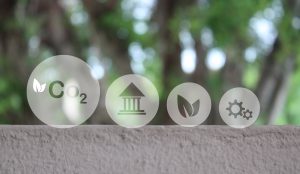Climate Policies, Macroprudential Regulation, and the Welfare Cost of Business Cycles
28.11.2023
28.11.2023
12:00 - 13:00
Fondazione Eni Enrico Mattei, Sala Cinema | Corso Magenta 63, Milan (Italy)
Barbara Annicchiarico (Università Roma Tre)
Tuesday, 28 November 2023
12:00 – 13:00 CET
Fondazione Eni Enrico Mattei
Corso Magenta 63, Milan
Sala Cinema
ABSTRACT
This study compares the performance of a carbon tax and a cap-and-trade scheme in a dynamic stochastic general equilibrium model that includes an environmental externality and agency problems associated with financial intermediation. Heterogeneous polluting firms purchase capital by combining their resources with loans from banks and are hit by idiosyncratic shocks that can lead them to default. The analysis finds that financial market distortions strongly affect the performance of climate policy throughout the business cycle. The welfare cost of business cycles is substantially lower under a cap-and-trade system than under a carbon tax if financial frictions are stringent, firm leverage is high, and agents are sufficiently risk-averse. The difference in welfare costs shrinks significantly in the presence of simple macroprudential policy rules that weaken the strength of financial market distortions. These policies can go a long way in smoothing business cycle fluctuations and aligning the performance of price and quantity pollution policies, reducing the uncertainty inherent to the government’s chosen climate policy tool.
SPEAKER
Barbara Annicchiarico is Full Professor of Public Economics at Roma Tre University. She holds a Ph.D. in Economics from the University of Rome “Tor Vergata” and an M.A. in International Economics from the Graduate Institute of International Study (IUHEI), Université de Genève. Her main research interests are in the fields of Environmental Macroeconomics, Growth and Business Cycle, Fiscal and Monetary Policy, and Macroeconomic Modeling for Policy Analysis.

